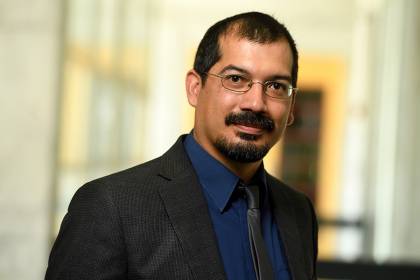Faculty Expert Profile
David Sing
- Bloomberg Distinguished Professor
Expertise
Affiliations
- Zanvyl Krieger School of Arts and Sciences
Prof. David Sing has research interests in detecting and characterizing exoplanets, constraining the physics and chemistry of their atmospheres, and performing comparative exoplanetary studies. The research involves both observations and theoretical spectral retrieval modeling. The observations primarily use the transit method using telescopes such as the Hubble Space Telescope and James Webb Space Telescope to make transmission, emission, and phase curve panchromatic measurements for planets from super-Earth to Neptune and Jupiter sizes. Prof. Sing is P.I. of the largest exoplanet program in history on the Hubble Space Telescope, the Panchromatic Comparative Exoplanetary Treasury Survey, which used 498 orbits to study 20 planets from UV to near-IR wavelengths. Highlights of the program include: the first spectroscopically identified stratosphere, heavy metals escaping from a planet's atmosphere, a Neptune size planet actively boiling off it's entire atmosphere, and the yellow sky exoplanet.
Prof. Sing is also an active member of the JWST ERS-Transit Program which is a community effort to observe the full suite of transiting planet characterization geometries with the James Webb Space Telescope, and a member of the JWST NIRSpec GTO Team.










